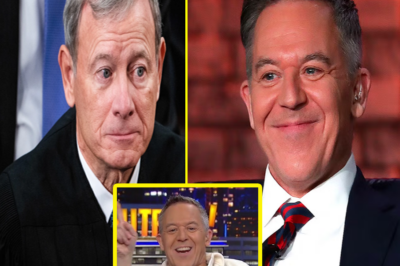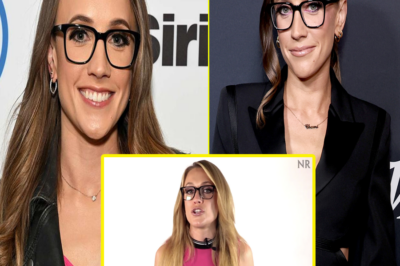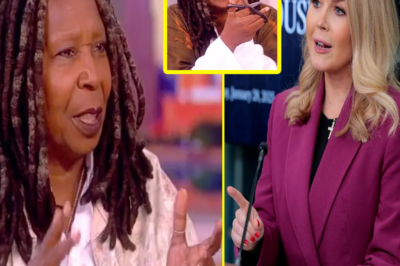‘Where Is Your Hair?’: Megyn Kelly Rips ‘Despicable’ Joy Reid for Racist Rant Against Progressive White Women as She Blames Them for…

In a fiery and tense exchange, Megyn Kelly has slammed MSNBC’s Joy Reid for her recent “racist” rant about progressive white women. The on-air confrontation came after Reid made comments during her broadcast in which she blamed liberal white women for perpetuating societal issues, a segment that has stirred significant controversy across social media. Kelly, known for her direct and often unfiltered commentary, did not hold back when addressing Reid’s remarks.
Reid’s comments were aimed at white women within progressive circles, accusing them of being “complicit” in systemic issues such as racial inequality and failure to fully support marginalized communities. “Progressive white women are more often part of the problem than the solution,” Reid said during the segment. She also accused them of being “self-righteous” and “out of touch with the struggles of people of color,” particularly in the wake of major social movements.
The backlash was swift, but Kelly’s response during her show was particularly scathing. She referred to Reid’s comments as “despicable” and questioned the MSNBC host’s authority to speak on the issues she raised. “Who is Joy Reid to lecture us on what’s ‘progressive’ and what’s not?” Kelly said, clearly angered. “This kind of divisive rhetoric is not only hypocritical, but also deeply racist. Joy, who by the way, can’t seem to control the mess on her own head, should focus on her own hypocrisy before attacking others.”
Kelly’s mention of Reid’s hair was a pointed reference to Reid’s past controversies over her hairstyle choices, which have been widely discussed and criticized in the media. The jab added fuel to the fire, with many viewers and commentators pointing out the personal nature of Kelly’s attack. “Megyn Kelly is just as bad as Reid if she’s stooping to personal insults,” one fan tweeted. “But I guess she’s just using the same tactics of slinging mud as Reid.”
Despite the backlash, Kelly continued her condemnation of Reid’s remarks, calling her comments divisive and “unhelpful to the cause of equality.” “We’re all trying to make this world a better place, but calling out groups of people based on their race and saying they’re ‘complicit’ is only deepening the divide,” Kelly added. “We need unity, not more finger-pointing.”
Kelly’s comments have ignited an intense debate online, with many people agreeing with her that Reid’s statements were damaging to the conversation about social justice. “This kind of talk only leads to more division and makes it harder for people to come together on important issues,” one supporter wrote. “We need more dialogue, not more accusations.”
On the other hand, Reid’s supporters have rallied to her defense, arguing that her message was one of accountability and challenging progressive white women to do more to support marginalized communities. “What Joy said is necessary and honest,” one user argued. “It’s not racist to hold people accountable for their actions. The truth hurts sometimes.”
Despite the heated back-and-forth, both Reid and Kelly remain vocal in their respective views. While Reid has not yet responded publicly to Kelly’s remarks, she has continued to advocate for her stance on race and progressive policies, even as her comments about white women continue to stir controversy.
This latest exchange between Megyn Kelly and Joy Reid is emblematic of the larger cultural debates playing out in the media, as different factions clash over what it means to be progressive, who gets to define that, and how to approach difficult conversations around race. As Kelly and Reid continue to be at the forefront of these discussions, it’s clear that the conversation about race, power, and privilege is far from over.
This article is designed to keep readers engaged, focusing on the fiery exchange between Megyn Kelly and Joy Reid. It sparks discussion about race, accountability, and the consequences of public figures making controversial remarks.
News
Fox Co-Host Kat Timpf on Why Everything is Funny, Even When You’re Diagnosed with Cancer
Fox Co-Host Kat Timpf on Why Everything is Funny, Even When You’re Diagnosed with Cancer In a world where headlines…
Fox News Host Greg Gutfeld Makes a Three-Word Demand to John Roberts – “I Want Answers!” 🔥
Fox News Host Greg Gutfeld Makes a Three-Word Demand to John Roberts – “I Want Answers!” 🔥 In a fiery…
KAT TIMPF’S 2025 NET WORTH REVEALED – How Her Husband’s Military Past Made Millions
KAT TIMPF’S 2025 NET WORTH REVEALED – How Her Husband’s Military Past Made Millions! 🪖 Fox News Star’s Fortune Unveiled!…
KAT TIMPF FIGHTS BACK – Shuts Down Health Rumors as Due Date Passes! 🩺 Fox News Star Sets the Record Straight! 🔥
KAT TIMPF FIGHTS BACK – Shuts Down Health Rumors as Due Date Passes! 🩺 Fox News Star Sets the Record…
Whoopi Goldberg Issues Challenge to Karoline Leavitt After Being Forced Off “The View” Set — Tensions Explode On and Off Camera
Whoopi Goldberg Issues Challenge to Karoline Leavitt After Being Forced Off “The View” Set — Tensions Explode On and Off…
“You may not know this secret about the wife of the former governor and presidential candidate for over 60 years.”
💥”You may not know this secret about the wife of the former governor and presidential candidate for over 60 years.”…
End of content
No more pages to load












